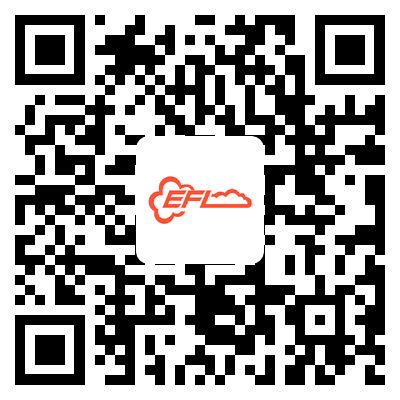
EFL · National City (Thailand)
- Basic framework section 1.. Framework section: Country elements
1.1 The National Flag of Thailand
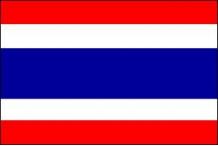
1.2 Signature Construction: The Grand Palace of Thailand
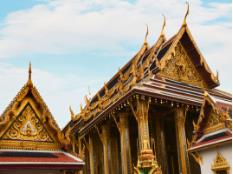
[Country Name] The Kingdom of Thailand.
[area] 513,000 square km.
[population] 69 million. There are more than 30 ethnic groups nationwide. The Thai people are the main ethnic groups, accounting for 40% of the total population, and the rest are the Lao, Chinese, Malay and Khmer groups, as well as the Miao, Yao, Gui, Wen, Karen, Shan, Semang, Sergei and other mountain ethnic groups. The Thai language is in Mandarin. More than 90% of the people believe in Buddhism, Malay Islam and a minority in Christian, Catholic, Hindu and Sikhs.
[Capital] Bangkok (Bangkok), with a population of 8 million.
[Head of State] King HIS MAJESTY KING MAHA VAJIRALONGKORN PHRA VAJIRAKLAOCHAOYUHUA, King Rama X. He ted in October 2016. The coronation ceremony was held from May 4 – 6,2019.
[Important Festival] Song Gan Festival (April 13 to 15 of Gregorian calendar); Water Lantern Festival (December 15); National Day (December 5).
[Brief] is located in the central and South-South Peninsula. It is bounded by Cambodia, Laos, Myanmar and Malaysia, the Gulf of Thailand (Pacific) in the southeast and the Andaman Sea (Indian Ocean) in the sea in the southwest. It is a tropical monsoon climate. It is divided into three seasons of heat, rain and cool, with an average annual temperature of 27 ℃.
[Constitution] The current constitution came into force on 6 April 2017 by King Alongkon Vajirara, which is the 20th constitution of Thailand.
[Parliament] Congress consists of the House of Commons and Lords, with 500 people and 250 in the House of Lords.
[Government] On the list of the new cabinet held by Thailand on July 10,2019, all the cabinet officials were sworn in on July 16.
[Administrative divisions] The country is divided into five central, southern, eastern, northern and northeast regions, with a total of 77 prefectures, complete with counties, districts and villages. Bangkok is the only government-level municipality.
[Judicial system] belongs to the mainland law department, with the statutory law as the main basis of the court judgment. The judicial system consists of the constitutional, judicial, administrative and military courts.
[Economy] Implement a free economic policy. It is an export-oriented economy, relying on China, the United States, Japan and other external markets. Traditional agricultural countries, agricultural products are one of the main sources of foreign exchange income, is the world's largest exporter in natural rubber. In the 1980 s, the electronic industry and other manufacturing industries developed rapidly, obvious industrial structure changed, continued rapid economic growth, people 's living standards increased accordingly, the minimum wage of workers and civil servants' salaries increased many times, and the residents ' education, health and social welfare improved. It was listed as a middle-income country in 1996. It fell into recession after the Asian financial crisis of 1997. The economy recovered in 1999. In July 2003 it repaid IMF $ 17.2 billion two years early during the financial crisis.
Thailand's economy has been showing positive growth since 2010, achieving a high growth rate of 7.8% in 2010 and 6.4% in 2012, but has fallen since 2013 amid political turmoil and weak global economic recovery. In the past five years, Thailand's economy has fluctuated due to the global financial crisis. Economic recovery improved throughout 2018 at 4.1%. According to Thailand's National Economic and Social Development Commission (NESDB), economic growth declined throughout 2019 by 2.4%, less than expected. Detailed statistics of total GDP volume and GDP per capita are shown in the following table:
Thailand Economy and Growth in 2015-2019
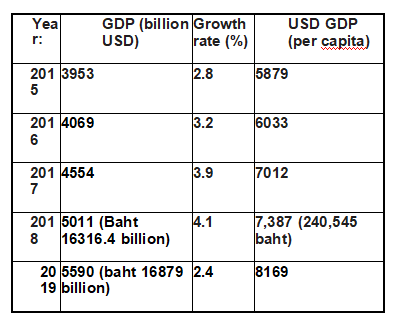
Note: "GDP" 2018 and "GDP" per capita are calculated at the end rate 32.56 of December 2018 published by the 2018 Bank of Thailand.The 2019 data are calculated at the 30.196 exchange rate of December 2019. Growth was priced unchanged in 1988. Source: Thailand National Economic and Social Development Commission (NESDB)
The national five-year plan for economic and social development was implemented since 1963. The twelfth five-year plan began in 2017. The main economic data for 2020 are as follows:
GDP: US $ 816.9 billion.
GDP Growth rate: 2.4%.
Currency name: the baht.
Exchange rate (average price): 1 USD ≈ 30.7 baht.
Inflation rate: -0.85%.
Unemployment rate: 1.64%.
[resources] They mainly include potassium salt, tin, lignite, oil shale, natural gas, and zinc, lead, tungsten, iron, antimony, chromium, barite, gems and oil.
[Industries] Export-oriented industries. Main categories are: mining, textile, electronics, plastic, food processing, toys, automobile assembly, building materials, petrochemical industry, software, tires, furniture, etc. The proportion of industry in the GDP is increasing.
[Agriculture] Traditional economic industry, the national arable land area accounts for about 41% of the land area. The main crops are rice, corn, cassava, rubber, sugar cane, mung beans, hemp, tobacco, coffee beans, cotton, brown oil, coconut, etc.
[Fisheries] With a vast 2,705 km coastline, the Gulf of Thailand and the Andaman Sea are unique natural marine fishing grounds. Bangkok, Songka, Phuket and other places are important fishery centers and fishing products distribution centers. Thailand is one of the major suppliers of fish products in the world market.
[Foreign Trade] Thailand is an official member of WTO, has bilateral preferential trade arrangements with Australia, New Zealand, Japan, India, Peru and other countries, and has signed free trade zone agreements with China, South Korea, Japan, India, Australia and New Zealand through ASEAN. Foreign trade plays an important role in the national economy. According to Thailand's Ministry of Commerce data, total imports and exports totaled $ 482.88 billion in 2019, down 3.8% year-on-year, with exports of $ 246.24 billion, down 2.7% and imports of $ 236.64 billion, down 4.7%. Thai trade in 2020 totaled $ 445.860 billion, down 8.1% year on year. Of these, exports were US $ 233.95 billion, down 5.9% year on year; imports were US $ 211.91 billion, down 12.4% year on year. Industrial products are the main growth point of export. China, Japan, ASEAN, the United States, the EU and other important trading partners.
[Commodity Structure] Thailand Import and Export Commodity Structure: imported commodities are mainly raw materials and semi-finished products, capital commodities and fuel; export commodities are mainly industrial finished products, agricultural products, agricultural processing products and mineral products. The main export products are: automobile and spare parts, computers and spare parts, integrated circuit boards, electrical appliances, primary plastics, chemicals, petrochemical products, jewelry, ready-to-wear, shoes, rubber, furniture, processed seafood and canned products, rice, cassava, etc.
The main imported products are: mechanical and electrical products and spare parts, industrial machinery, electronic product spare parts, auto parts, spare parts, building materials, crude oil, paper machinery, steel, integrated circuit board, chemical products, computer equipment and spare parts, household appliances, jewelry, metal products, feed, fruits and vegetables, etc.
2.4.5 China-Thailand Economic and Trade
The governments of China and Thailand signed a trade agreement in 1978, and in 1985 the Agreement on the Establishment of the Joint Economic Cooperation Committee and the Agreement on the Promotion of Investment, the Agreement on Avoid Double Taxation, and in 2083 the Agreement on the Establishment of the Joint Committee on Trade, Investment and Economic Cooperation in 2003. In April 2012, China and Thailand signed seven bilateral cooperation documents in Beijing covering economic and trade, agricultural products, flood control and drought relief, railway development, and natural resources protection. Chinese Premier Wen Jiabao (then) and Thai Premier Yingluck Shinawata jointly attended the signing ceremony. China and Thailand published the Vision Plan for the development of China-Thailand relations in Bangkok on Thursday. On December 19,2014, Chinese Premier Li Keqiang visited Thailand and witnessed the signing of Thai Prime Minister Chan-ucha on the memorandum of understanding on Agricultural Trade Cooperation between China and Thailand. In June 2018, the Sixth China-Thailand Economic and Trade Commission signed the Agreement on the Inspection, Quarantine and Veterinary Health Requirements for Frozen Poultry Meat in Thailand and its by-products.
[Bilateral Trade] According to Chinese customs statistics, in 2019, total trade in Thailand was USD 91.75 billion, up 4.8% year on year, including China exported USD 45.59 billion to Thailand, up 6.3% year on year, China imported USD 46.16 billion from Thailand, up 3.4% year on year, and China's trade deficit of USD 570 million. In 2019, the main categories of China exports to Thailand include: electrical equipment, audio equipment, TV equipment, boiler machines and components; steel; plastics and products, optical, medical or surgical instruments, etc.; vehicles or parts; chemical products; organic chemical products; steel products; furniture and household products.
According to the statistics of China Customs, the main commodities imported from Thailand in 2019 include electrical equipment, audio equipment, TV equipment; boiler machines and components; rubber and products; plastics and products, optical, medical or surgical instruments; wood, wood products and charcoal; organic chemicals; mineral fuel, oil, mineral wax, etc.; edible fruits and nuts, citrus fruits or melons; vehicles or parts.
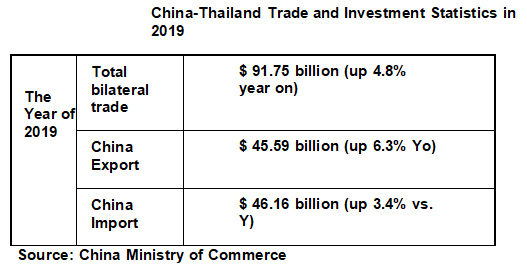
[Large Enterprises] CP Group was founded by Chinese industrialists in 1921,
It is called Bubee Group outside China. The company has formed a pattern of common development with agriculture and animal husbandry, aquatic products, seeds, telecommunications, commercial retail as the core, petrochemical, locomotive, real estate, international trade, finance and other business, and is the largest agriculture, animal husbandry industry and commerce integrated management company in the world.
Thailand National Petroleum Limited (PTT PCL) is the only Thai company in the Fortune Magazine World Fortune 500, with an operating income of $ 72.307 billion in 2019, ranking 130th in the Fortune 500. Its business field covers natural gas, oil, petroleum and petrochemical etc, listed on the Thailand Stock Exchange.
Founded in 1987, SAI PCL Rubber Limited, one of Thailand's largest producers and exporters of natural rubber, has 7,200 hectares of rubber cultivation in 19 prefectures. The total staff is over 9,000 and the total annual sales of natural rubber is 800,000 tons. It is the first and only Thai rubber company listed on the Thailand Stock Exchange and the Singapore Stock Exchange.
1.3 Thai culture
1.3.1 Clothing Culture
Thai national clothing is very popular in Thailand and is worn widely. Thai ethnic clothing is divided into men 's wear and women' s clothing. Men's wear is a standing collar mandarin jacket and pants or a square skirt. The men's mandarin jacket is called suea phra ratchathen, wearing long sleeves (see overview picture) and wearing short sleeves. The women's dress is the dress below the top, the square dress is called the "pha sin", is a rectangular silk tightly wrapped around the waist, adjust the elastic with a rope, and then hide the waist rope in the back part. Clothing can be wrapped from left to right or from right to left. The top can have a jacket and a shirt. The formal costume also wears a reclining strap.(Baidu)

Figure 1
1.3.2 Buddhist Culture
Buddhist temples in Thailand, the world's famous Buddhist temples are concentrated, among which the most famous Buddhist temples are lying Buddha temple, jade Buddha temple, Kings palace, Yunyan Temple, Gilada Palace and Ananda Palace, each temple is simple, but in the hearts of the Thai people, but become a holy place because of pragmatic and affinity.(Baidu)

Figure 2
1.3.3 Thai Literature
After the 20th century, Thai literature was influenced by Western culture, and new Thai literature emerged at the historic moment. Most of the new literary authors were of civilian origin and are represented by Sirapa (1905 – 1974), the founder of modern Thai literature. West Wu Lapa is a representative of the Thai school of realism ", and his representative works are" Looking Forward "," Man "," Life and War "," Picture Love Thoughts " and so on. Most of his works have the theme of exposing the darkness of society and yearning for a better life. They have exquisite brushwork, plain language and are deeply loved by the people.
Another representative of Thai literature during this period was Prince Ki Bamo (Kukrit Pramoj,1911-1995). Prince Bamo is a famous Thai politician, writer and poet, whose representative work is the novel The Four Dynasties, describing the rise and fall of a feudal noble family and historically reproducing the social and political life of Thailand during Rama V to Rama VIII.
2, Framework: News hotspot
(1) How One Belt And One Road did in Thailand, 80 kilometers along the railway-Source: Good Video
https://haokan.baidu.com/v? vid=9262854490654279394 & pd=pcshare
(2)| Thai Business Officer: The Expo brings recovery opportunities for Small and Medium-sized Enterprises in Thailand-Source: Good Video
https://haokan.baidu.com/v? vid=5023939248585868694 & pd=pcshare
- Special Topic | invites you to see "CCTV One Belt And One Road Ouyang Xiadan Interview with Thailand Special Topic" -Source: Tencent Video https://v.qq.com/x/page/i03859t6nmn.html? sf=uri
3, Framework Section: National · Human Geography
3.1 Thailand Geographic Location
Kingdom of TaieThe Kingdom of Thailand is a constitutional monarchy located in Southeast Asia. Located in the middle of the Central-South Peninsula, it borders on the north and Myanmar to the west, Laos to the northeast, Cambodia to the southeast, and the long and narrow Peninsular to the south. Thailand (The Kingdom of Thailand), renamed Thailand in June 1939, meaning "Land of Freedom". According to the latest population data in 2020 released by the Thai Interior Ministry Civil Affairs Bureau, the population of Thailand currently exceeds 66.55 million, 95% of the residents believe in Buddhism, and Buddhism is the state religion. Thailand is located in the center of the Central-South Peninsula, Thailand is an important country along the "21st Century Maritime Silk Road". Thailand uses a currency of THB.
Thailand is in a multi-industrial, multi-dimensional development economy, with GDP ranking 26th in the world and at the middle GDP ranking in Southeast Asia. According to Trading Economics, GDP accounted for 0.81% of the world economy in 2018. Thailand's economic growth is gradually slowing over the past 10 years, long-term economic growth continues to decline by 3.2% per year (2009-2019), the economic value of GDP was 16.9 trillion baht in 2019, and the economic structure has changed to mainly service industry. At present, it is gradually introducing the 20-year national development strategy, Thailand 4.0 strategy and the development plan of the Eastern Economic Corridor, It is vigorously promoting infrastructure construction, ten key industries and super industries, etc. Its economic strength cannot be underestimated.
(1)Thailand Collection-Beautiful Thai Natural Landscape _ Beautiful Video
https://haokan.baidu.com/v? vid=3968131966928247836 & pd=pcshare
(2)Thai View-Grand Palace-Good Video
https://haokan.baidu.com/v? vid=13034159167975183450 & pd=pcshare
(3) Introduction to the Thai Bird's Nest Standard Factory-Good Video
https://haokan.baidu.com/v? vid=9537177237654336710 & pd=pcshare
- Frame Section: Latest Information
1: Thailand and Hong Kong, China, will sign free trade agreements in the third quarter of 2021.Thailand's Commerce Minister Jurin Laksanawisit recently revealed that Thailand and Hong Kong will sign a free trade agreement in the third quarter of this year, Yutis reported. Edward Yau, director of the Business and Economic Development Bureau, said with him on May 6 that Hong Kong, China, has intended to join the Regional Comprehensive Economic Partnership (RCEP), including Thailand, according to local media citing Zhu.Source: East Society
https://www.163.com/dy/article/G9QJL4D00512DAHC.html
2: Consul General of Thailand and Business Consul in Shanghai live, Pinduoduo netizens killed 18 tons of Thai durian.On May 10, the Business Office of the Consulate General of Thailand in Shanghai and Pinduoduo jointly launched the "2021 Thailand Commodity Festival Live Special Show".Source: Blue Whale Finance
https: / / baijiahao.baidu.com/s? id=1699547278353149571 & wfr=spider&for=pc
3: Thailand and China rose 67.2 billion baht by 46% in the first quarter of this year.Thailand's import and export trade reached 383.577 billion baht, up by 1.931% year on year, including 225.981 billion baht, exports of 157.596 billion baht, and a trade surplus of 68.385 billion baht, Giradi, head of the Foreign Trade Department of the Ministry of Commerce, said Wednesday.Source: CCTV
https: / / baijiahao.baidu.com/s? id=1698852074696062925 & wfr=spider&for=pc
4: Guangxi Story: China 's policies bring unlimited business opportunities to Thailand' s fruit trade-Good Video
https://haokan.baidu.com/v? vid=517546629170049024 & pd=pcshare
5: Thailand's durian exports to China rose 14% in the first quarter, becoming the largest export market for the country, it reported on May 6.Thailand's durian exports to Chinese mainland reached $ 186 million in the first quarter, up 14% year-on-year, or 88% of the total Thai durian exports, said Oramon Suptavatum, director of the Thai trade negotiation department. In 2020, Thai durian exports to China reached $ 1.5 billion, an increase of 78% from 2019.Source: Yunnan Daily
http://yn.yunnan.cn/system/2021/05/10/031440002.shtml
6: Thailand has launched a mobile private car to monitor food safety.Thailand's Ministry of Public Health on December 26,2019 launched "food safety mobile car" monitoring food safety in Thailand, the department and 36 foreign office health bureau and other popular fruits, vegetables and other food, such as meatballs, pork sausages and drinks, etc., check food labels and extract food samples for pesticide residues and pollutant detection, to ensure the safety of food for the Thai people.Source: Food Partner Network
http://news.foodmate.net/2020/01/545991.htm l
7: Thailand has issued a draft genetically modified food bill.Source: Xiamen Technical Trade Measures Information Network
http://www.clii.com.cn/cyaq/201907/t20190710_3935373.html
8: The exchange rate has stopped, so today to talk about Thailand's food safety.Source: "Come Back" on the official account
https://www.sohu.com/a/314328142_120055879
9: Thailand revised the National Food Safety Law, which was extended for more than 40 years.Source: sohu
https://www.sohu.com/a/293665245_181860
10: Thailand's exports rose 13.09% to a 36-month high in April
http://th.mofcom.gov.cn/article/d/202105/20210503065916.shtml
According to Thai headlines on May 26, April exports totaled $ 21.422.27 million, the highest in the past 36 months, according to official figures. Vice Prime Minister and Business Minister Zhu Lin said this was the result of all the efforts, and stressed that the original 4% growth target would not be adjusted.
Thai exports from January to April 2021 increased by 4.78% year on year, cumulative up by 11.58%, excluding special factors like oil, gold and weapons. In addition, imports in April totaled $ 21.246.79 million, up 29.79%, and the trade surplus in April was $ 182.48 million.
The total import and export volumes completed in the first four months of 2021 were $ 85.577.3 billion and $ 84.8791.6 billion, respectively, with a total trade surplus of $ 6981.4 million. Hot-bought items include agricultural and sideline food, home office supplies, health supplies, and manufacturing equipment and durable goods related to the economic recovery, such as cars and jewelry.
In terms of important export markets, such as the United States, Japan, the European Union, China and South Korea have all maintained steady growth, with India and other South Asian countries performing well.
11: Thailand-China trade volume in the first quarter of this year reached 67.2 billion
http://th.mofcom.gov.cn/article/d/202105/20210503058546.shtml
According to May 4, director of the Department of Foreign Trade, said that in the first quarter of 2021 (January to March), the total trade volume of 383.576 billion baht, 225.981 billion baht, an import amount of 157.596 billion baht and a trade surplus of 68.385 billion baht. Border trade with neighbours (Malaysia, Myanmar, Laos, Cambodia) is 222.720 billion baht, up 957%, exports of 136.456 billion baht and 86.264 billion baht. Malaysia topped the border trade country, with a trade volume of 145.869 billion baht.
Cross-border trade volume with China, Singapore, Vietnam and other countries and regions reached 160.856 billion baht, increasing by 36.06%, of which China ranked first in a cross-border trade country and reached 67.21 billion baht. The main commodities exported to China are rubber, fresh fruits, frozen fruits, dried fruit and rubber products.
12: Thailand signs the Regional Comprehensive Economic Partnership Agreement (RCEP)
http://th.mofcom.gov.cn/article/haiguan/202011/20201103017501.shtml
On November 15, Thai Vice Prime Minister and Commerce Minister Zhu Lin signed the Regional Comprehensive Economic Partnership (RCEP) on behalf of the Thai government. Zhu said the formal signing of the agreement would bring Thailand into a huge market consisting of 15 countries, representing about a third of the world's economy. As part of the world's largest free trade zone, Thailand will benefit in many ways. Thailand's RCEP member state will help the export of agricultural products, industrial products and services, and the agreement will also facilitate the export and investment of the various Member States.
"The signing of the RCEP is of great significance to ASEAN," Zhu said. Thailand is a member of ASEAN, and it also considers its overall interests when we formulate and promote economic and trade policies. RCEP is no longer an agreement between 10 ASEAN countries, but an ASEAN 10 + 5, namely ASEAN and 15 countries in China, Japan, South Korea, Australia and New Zealand, which will generate huge development potential and each country will become an important force in promoting regional economic integration."
Speaking of the importance of the signing of the RCEP in promoting bilateral cooperation between China and Thailand, Zhu Lin said, " China is a very important member of the RCEP. Through the most diversified multilateral cooperation system, Thailand and China can share the fruits of multilateral cooperation. China is a very important trading partner of Thailand, and the bilateral trade has a very good momentum. The Thai government also fully supports the trade of the two countries. The two sides have been cooperating closely and believe that the economic and trade cooperation under the RCEP framework will rise to a new level."
Excerpt from Thailand China Network, 2020, November 17, the original title "Thailand Vice Prime Minister and Minister of Commerce: RCEP Every Member State Will Become an Important Force to Promote Regional Economic Integration", and the original content was slightly deleted.
- Professional framework section
5, Framework Section: National · Food Introduction
[Agriculture] Agriculture is the pillar industry of Thailand. Thailand covers a national cultivated land area of about 15 million hectares, accounting for 31% of the total land area, and has an agricultural output value accounting for more than 10% of GDP. Agricultural products are one of Thailand's important export commodities. The main agricultural products include rice, natural rubber, cassava, corn, sugar cane and tropical fruits. Thailand is the world's largest producer and exporter of rubber, and the largest exporter of cassava and rice. Capioca production is third in the world, 60% for export. In 2019, Thai rice exports were 7.58 million tons, a significant decrease from 11 million tons in 2018, mainly due to an appreciation of the baht of about 40%.
Thai fragrant rice Thai fragrant rice is a long-grain rice, a species of indica rice native to Thailand. It is world famous for its fragrant waxy taste and unique dew pocket tree fragrance. It is one of the largest exported rice varieties in the world. Thai rice is mainly produced in northeastern Thailand, especially Roi Et, Ubon Ratchathani, Burirum, chrysanthemum, Sunan House (Su stingy House), and Yitong House and other places. Thai fragrant rice shows the best quality only in its place of origin. This is because of the special growth conditions there, especially during the fragrant rice flowering period, where the cool climate, bright sunlight, and the gradually decreasing humidity in the soil during rice grouting, play a very important role in the production and accumulation of fragrance.

Durian production in Thailand is the first in the world. Every year from the end of March to October, durian can be seen everywhere. · Thailand and Malaysia are easily available.

- Framework Section: Food Standards [State Market Regulatory Administration]
1: Thai Ministry of Public Health on December 26,2019 launched "food safety mobile car" monitoring food safety in Thailand, the department and 36 foreign office health bureau monitoring popular fruits, vegetables and other food, such as meat, pork sausages and drinks, check food labels and take food samples for pesticide residues and pollutant detection, to ensure the safety of Thai food.Source: Food Partner Network
http://news.foodmate.net/2020/01/545991.htm l
2: On 5 July 2019, Thailand issued a G/TBT/N/THA/550 bulletin of the GM Food (GMFs) Act (draft). Source: Xiamen Technical Trade Measures Information Network
http://tbtims.wto.org/en/RegularNotifications/View/151072? FromAllNotifications=True
3; Thailand defines the quality and standards of cannabis seeds. On 5 March 2021, the Thai Ministry of Public Health issued Announcement No. 425, regulating the quality and standards of cannabis seeds.Source: Xiamen Technical Trade Measures Information Network
http://news.foodmate.net/2021/03/587222.html
4: Thailand Ministry of Public Health, 19 October 2020: Thailand Government Gazette published the Announcement No. 417 and 418 issued by the Ministry on October 9, reopening the limit standards for food additives.Source: Food Partner Network
http://news.foodmate.net/2020/10/574437.html
5: The Thai Food Commission resolution adopted the draft Limit of Pesticide Residual in Food No.3.On 17 August 2020, the Thai Food Commission approved a resolution approving the draft "Pesticide Residual Limit in Food No.3". In this resolution, the Thai Food Commission focuses on consumer safety and international trade equality.Source: Food Partner Network
http://news.foodmate.net/2020/08/570163.html
6: Thailand issued a announcement to formulate standards for pollutants in food.On May 20,2020, the department reported according to the Thai Ministry of Public Health that it published Regulation No. 413 and 414 No. 4 in the Thai Government Bulletin. Both statutes came into force 180 days after the publication of the Government Gazette.Source: Xiamen Technical Trade Measures Information Network
http://www.clii.com.cn/cyaq/202005/t20200529_3944800.html
7: On August 27,2020, the Thai Ministry of Agriculture Cooperation issued the Mung Bean Quality Standard through the 197th Thai Government Bulletin of 2020.The main contents of the standard include general quality requirements for mung beans, quality grading and specifications requirements, packaging containers and labels, standards for pollutants and pesticide residues, sampling basis and inspection items and methods.Source: The General Administration of Customs
http://news.foodmate.net/2020/09/570728.html
8: Thailand advocates the restaurant upgrading certification as a "Q standard" level.On August 29,2020, Chuadee, Secretary General of the National Agricultural Commodity and Food Standards Authority, said that Thailand has started projects to "operate safe food ingredients" to promote restaurant upgrade certification as a "Q standard" level to build consumer confidence and ensure food safety.Source: Food Partner Network
https://https://www.antpedia.com/news/15/n-2437115.htmlwww.antpedia.com/news/15/n-2437115.html
9: Thailand solicited comments on the draft standards for chocolate and its products and cocoa products.On August 20,2020, the Thai Food and Drug Administration issued two draft food standards, namely the draft Standards for Chocolate and its Products and the Draft cocoa Product Standards.Source: General Customs Administration http://www.fda.moph.go.th/sites/food/SitePages/View.aspx? T=FoodNews&TF=1 & IDdata=146
10: Export safety standards for frozen food in Thailand have been further improved. Thailand 's Ministry reported on May 7 that the Promotion of International Trade (DITP) has raised safety standards for frozen food exports and launched "safe distribution in Thailand" with a view to increasing consumers' confidence in frozen food in Thailand. Source: Yunnan Provincial Foreign Investment Cooperation Network
https: / / baijiahao.baidu.com/s? id=1699541644482583750 & wfr=spider&for=pc
11: Thailand clearly defines the quality and standards of food containing cannabis seeds. On 5 March 2021, the Thai Ministry of Public Health issued Proclamation No. 425, regulating the quality and standards of food containing cannabis seeds. Source: Xiamen Technical Trade Measures Information Network
http://news.foodmate.net/2021/03/587222.html
- Framework Section: Policy and Regulations
7.1 Regulations and policies on Foreign Trade
7.1.1 Trade Authority
The Thai government department in charge of trade is the Ministry of Commerce (Ministry of Commerce), whose main responsibilities are divided into two parts, promoting enterprise development, promoting domestic trade in goods and services, regulating commodity prices, safeguarding consumer rights and protecting intellectual property rights, participating in WTO and various multiple and bilateral trade negotiations, and promoting the sound development of international trade. The departments in charge of foreign business in Thailand include the Trade Negotiators, the Promotion of International Trade and Foreign Trade, and the departments in charge of domestic business include the Department of Business Development, Domestic Trade, Intellectual Property, etc.
7.1.2 Trade Regulatory System
Thailand's major trade-related laws are the Export Commodity Promotion Act 1960,1979
The Export and Import Commodities Act, the Regulations on Export Administration of Some Commodities 1973, the Export Standards Act 1979, the Anti-dumping and Countervailing Act 1999, the Customs Act 2000 and the Import Surge Safeguards Act 2007, etc.
Relevant Provisions for 7.1.3 Trade Management
[Import Management] Thailand implements a free import policy for most commodities, and any importer issuing a letter of credit can engage in the import business. Thailand only implements administrative measures to ban import restrictions, tariff quotas and import licenses for some products. Imported products mainly involve public safety and national safety, and other products, such as old motorcycle engines, gambling equipment; tariff quota products include longan, such as rice, coconut, garlic, feed corn, palm oil, coconut oil, longan, tea, soybean and bean cake, etc., but the tariff quota measures do not apply to import from ASEAN member states; import license is automatic import license and non-automatic import license, the products include tariff quota products and processed products such as fish, raw silk and old diesel engines. Automatic import of licensed products include some clothing, concavure printers, and color copiers. The Commercial Department of Thailand is responsible for developing the list of products subject to import license management.
[Export Management] In addition to the products controlled by export registration, export registration, quotas, export tax, export ban or other restrictions, most of the products can be free to export. Currently, there are 45 products under export tax, including rice, fur leather, teak and other wood, rubber, steel slag or iron slag, animal leather, etc.
[Trade barriers] The average tariff rate imposed by Thailand on the WTO members is 11.2%.
(1) Taritariff tariff. Thailand imposes over 30% tariffs on large numbers of imports, including agricultural products, automotive, auto and auto parts, alcoholic beverages, fiber, and some electronics. For example, silk fabrics, wool fabrics, wool fabrics and some other fiber fabrics are mostly 60%, and the import tariff rate of motorcycles and some special use vehicles reaches or exceeds 80%, 52% for rice, and 216% for dairy products.
(2) tariff upgrade. Thailand imposes zero tariffs on the vast majority of industrial raw materials and necessities, such as medical equipment; on selected raw materials, electronic parts and delivery for international transportation
1%; some chemical raw materials such as ammonium chloride, calcium chloride, magnesium chloride are only 1%; 5% on most of the primary products and capital goods; 10% on the intermediate products; 20% on the finished products; and 30% on special products to require protection.
(3) Tariff quota. Under the WTO《 Agricultural Agreement, Thailand controls 24 agricultural products and
Tax quota administration, including longan, coconut meat, milk, potatoes, onions, garlic, coconut, coffee,
Tea, dried peppers, corn, rice, soy, onion seeds, bean oil, coconut oil, instant coffee, local smoke silk, raw silk, etc. These products have low tariffs within quotas, high tariffs outside quotas, such as garlic import quotas of only 64.6 tons, tariff rate of 27% and off-quota tariff rate up to 57%.
(4) Import restrictions. Thailand requires 42 products requiring import permits, including raw materials, stone
Oil, industrial raw materials, textiles, medical drugs, and agricultural products. Thailand bans the import of second-hand motorcycles and their
Parts and game consoles. Product import must meet the specified requirements, such as paying special fees, requiring proof of origin, etc. The import of food, pharmaceutical products, mineral products, weapons, ammunition, and works of art requires the special permission of the relevant minister. Thailand requires detailed product operation information on the food production process and ingredients in the food import registration. The Food and Drug Administration of the Ministry of Health of Thailand stipulates that the import of all food, drugs and part of the medical equipment shall conform to the management of the import licenses. The food import license is changed every three years, each time it needs to be re-certified. After the documents are delivered to the Food and Drug Administration, the drug import license should be replaced once a year, and the same also needs to pay relevant fees.
(5) Technical trade barriers. Thailand implements mandatory certification for 60 products in 10 fields, including agricultural products, construction raw materials, consumer goods, electronic equipment and accessories, PVC pipes, medical equipment, LPG gas containers, surface coatings and means of transportation. The Food and Drug Administration of the Ministry of Thailand stipulates that all imported food, drugs and some medical equipment should meet the standards, testing, labeling and certification requirements. The import of these products must be accompanied with Thai labels indicating the product name, weight or capacity, production and expiration date of production and approved by the Food and Drug Administration of the Ministry of Health of Thailand.
(6) Government procurement. Thailand is not a signatory to the WTO《 Government Procurement Agreement. In government procurement bidding, Thailand set a series of restrictions on foreign bidding enterprises, making it impossible to bid or difficult to win the bid. If Thailand often stipulates in the bidding documents that Thailand shall not participate in bidding; the government procurement department is uncertain about the bidding qualification, has the right to accept or reject some or all bids at any time, or even modify the technical requirements in the bidding process; the tenderer has no right to appeal about the bidding conclusion. According to the Sales Trade Law promulgated by Thailand in May 2000, foreign winning enterprises must barter for government procurement contracts of more than 300 million baht to repurchase Thai products worth no less than 50% of the contract amount, which greatly increases the operating costs of foreign winning enterprises.
7.1.4 Inspection and Quarantine
Thailand's authority for commodity quality supervision, inspection and standard certification is mainly the Food and Drug Administration (FDA) under the Ministry of Health and the National Agricultural Food and Food Standards Authority (ACFS) under the Ministry of Agricultural Cooperation.
The domestic regulations and international agreements underlying FDA are: Thailand Drug Act 1967, Mental Substances Act 1975, Food Act 1979, Narcotics Act 1979, Medical Device Act 1988, Prevention of Volatile Substances Act 1990, Cosmetics Act 1992, Dangerous Substances Act 1992, International Convention on Mental substances 1971, United Nations Agreement against the illicit sale of narcotic and psychotropic substances of 1988. FDA controls the market access of goods according to relevant laws and regulations, and reviews and issues the corresponding health certificates, GMP certificates, certificates of HACCP and free sales certificates of all kinds of goods. The importer must apply for an import license to import food, the designated pantry must be used after FDA inspection, the import license must be updated every 3 years; for specially controlled food, the importer must register with FDA to obtain approval to import.
ACFS's primary responsibility is to develop standards for primary, food and processed agricultural products, issuing
License, the certification agencies and enterprises of the relevant products, in addition, but also assist and
Participating in foreign negotiations on technical issues, non-tariff measures and international standards, its main objective is to develop the Thai standard system of agricultural and food products to international standards to expand exports of agricultural products and food. Since its inception, the ACFS has formulated and published 22 plant food standards, 10 animal product standards, 3 fish food standards, and 20 other standards.
Tourists who enter Thailand with plants, live animals, pets, animals and animal products, must apply to the Ministry of Agriculture of Thailand in advance. After approval, they must go through the customs clearance procedures through the animal and plant inspection and quarantine.
7.1.5 Customs Management Rules and Regulations
The Customs Law (Customs Act) is the fundamental legal system for implementing customs administration in Thailand. Currently, the Thai Customs import and export commodity code and customs duty administration system is formulated under the revised Customs Tariff Act (Customs Tariff Decree 1987) of 1987. The Government of Thailand will irregularly adjust the commodity code classification and customs duties according to the administrative needs, and the relevant decrees and announcements can be checked on the website of Thailand Customs at the website address:
www.igtf.customs. go.th/igtf/en/main.frame.jsp.
In Thailand, most imports require two tax parts, customs duties and VAT (VAT). Tariff method is generally taxed by price, and some goods are also taxed at a specific unit tax rate. In general, the tariff calculation formula for import goods is CIF multiplied by the import tax rate, and the import tariff of most goods is between 0-80%; the total value of the imported goods and the consumption tax (some goods are paid) is multiplied by 7%.
Tariff rates for major Thai imports
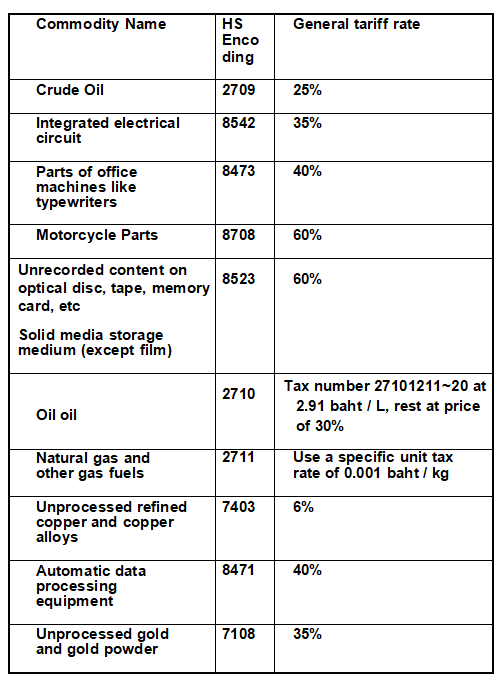
Source: Thai Customs Office
Thailand gives different tariff concessions to ASEAN member States and countries that signed multi-bilateral trade agreements. The tariff rates and concessions of specific goods can be checked on the customs website through HS tax number or commodity name at the website: www.igtf.customs. go.th
8, Framework Section: Exhibition Exhibition (Food)
(1) Bangkok International Food Show, Thailand, 2021 THAIFEX Anuga-Asia
https://beijing.11467.com/info/7213414.htm
Basic Information
Name (Chinese): Bangkok International Food Exhibition, Thailand, 2021, THAIFEX Anuga-Asia 2021
Name: THAIFEX Anuga-Asia 2021
Exhibition Date: May 26-230,2021
Exhibition Venue: IMPACT Exhibition Center, Bangkok
Exhibition cycle: once a year
Sponsor: Singapore Division of Cologne Exhibition Company
Exhibition area: 107,000 square 2
Exhibition introduction
Asia (Thailand) International Food Show Thaifex-Anuga Asia is an influential food and beverage exhibition in Asia * * *, and has been held for 17 sessions. At the same time, Thailand Food Exhibition will also hold World of Seafood(Aquatic Products Exhibition), World of FoodService(Food Service Exhibition), World of Coffee & Tea(Coffee and Tea Exhibition) and other three major exhibitions. Bangkok Exhibition Bangkok, Thailand is the Singapore division of Cologne Exhibition Corporation.
Cologne Exhibition Company is one of the world's big exhibition organizers in the world, and the exhibitions are * * * exhibitions in the relevant industry. The Singapore division of Cologne Exhibition Company is the Asia-Pacific division, and this exhibition is also one of the best * * * exhibitions in Asia in the food and beverage industry.
The Past Review
Exhibition Name: Thailand Asian Food Expo
Exhibition time: May 28 to June 1,2019
Exhibition cycle: once a year
Exhibition Country: Thailand
Exhibition Venue: Bangkok International Exhibition Center is held
[Exhibition Review]
The number of international exhibitors at the 2019 Asia (Thailand) International Food Show has increased by 20% from 2018. It attracted 2,700 enterprises, 37,361 spectators in 125 countries, including 21,326 local audiences and 6,035 overseas visitors to Bangkok, of which Chinese companies were about 100. The trade audience numbers reached 30,479. The exhibitors came from 36 countries, including Argentina, Brazil, Canada, China, France, and Germany, with a total number of 1,340 exhibitors.
Market introduction:
According to Thai customs statistics, Thailand and China exported $ 38.15 billion, down 4.1% from January to June. Among them, Thailand's exports to China were USD 13.75 billion, down 9.2%, representing 11.2% of its total exports, and USD $ 24.39 billion from China, down 0.9%, or 20.2% of its total Thai imports. The Thai trade deficit was US $ 10.64 billion, up 12.4%.

[Exhibit Scope]:
Food and beverage categories: fruits and vegetables, healthy food, condiments, fruits and vegetables, food additives, fresh or frozen food, seafood, cream products, meat products, bread and baked food, dairy products, refreshments, drinks, food raw materials, snacks, etc.
Food technology: Public food technology, technical equipment, instruments, communication, information system, services, food and semi-products, environmental protection, hotel equipment, interior design, safety system, health services, hotel consultants;
Processing technology: food machinery, freezing technology, packaging technology; retail technology, store technology, product display;
9, Framework Section: Food Category
Fruit fruit:
Benefiting from free trade agreements with countries, Thailand has become the world's sixth largest exporter of fruit behind Spain, the Netherlands, Mexico, the Ministry of Commerce said recently.
The main export markets for Thai fruit are Southeast Asian countries and China. Thailand's fruit exports from January to October were US $ 3.21 billion, up 41 percent year-on-year, Xinhua reported. Among them, the fruit exports to ASEAN and China are US $ 2.69 billion, accounting for 84% of Thailand's total fruit exports.
Thailand's popular fruits include durian, Mangosteen and longan, and Thailand is the largest exporter of tropical fruits, said Auramon Supthaweethum, director of the trade Negotiation department of the Ministry of Commerce.
Thailand has now signed free trade agreements with Chinese mainland, Hong Kong, India, Japan, Australia, New Zealand, Chile, Peru and other regions, and more regions are under negotiation. Free trade agreements bring tariff breaks, growing steadily despite declining global fruit exports, which last year ranked 10th among world fruit exporters and rose to sixth this year.
Fruit Policy:
Central wide network nanning on November 20 news (reporter Qin Yong) by China food and livestock import and export association of cold chain circulation professional committee, Thailand sustainable development agricultural trade association (CASA), chongqing gold fruit source trade co., LTD., zhejiang Zhongtai supply chain management co., LTD. To undertake the "Thailand fruit trade negotiation and policy release ceremony" held in guangxi Nanning agricultural products trading center today.
At 10 in the morning, the first batch with AGQC certification logo and CASA whole traceability mark Thailand coconut green, longan container in nanning agricultural products trading center ceremony, China food and livestock import and export association Xu Xiaohu, vice president and director of the Ministry of commerce to unlock the red silk, the marks "Thailand fruit trade talks and policy release ceremony" officially launched, also means that Thailand some fruit export China for the first time using the new Thailand export standards.
Export situation to China:
Total exports of fruit and vegetable exports to China in 2018 were $ 1.93 billion, up by 1,312% from 2002, Thai media reported. For fruit, total exports to China totaled $ 1,02 billion, or 2,841%, last year.
Statistics show that between January and May 2019, Thai exports of fruits and vegetables to China reached $ 1.199.7 billion, up 31% from the same period last year. Among them, fruit exports accounted for $ 8386.1 million, up 123% and the highest durian exports, 48.5%, followed by longan, mangosteen and coconut green.
Thai vegetables are mainly cassava, with a proportion of 96%, followed by red beans and mung beans, as well as dried vegetable products such as snow ears.
- Framework section: Brand recommendation (> 12)
1: Famous beverage brand:
UFC, Red Bull, Fruit Le, VAMINO/ wow mino, M-150, Lactasoy, MAHATONG, Malee/ Mary, LEAUN/ Leon
2: Famous liquor brand
Whisky Mekong, Singha beer, Singha Beer
- Framework section: Enterprise recommendation (> 12)
Famous beverage Products Company:
1: Tiansi Group.Based in Bangkok, Thailand, Days Silk Pharmaceutical is the founding company of Red Bull functional drinks, the exclusive holder of Red Bull Formula worldwide, and one of the largest functional beverage manufacturers in Southeast Asia. In addition, Tianxi Pharmaceutical and the Xu family are the owners of the Red Bull trademark rights worldwide."Now (2015), China plays a crucial role in the Asia-Pacific and even the world. Both Asia and the world are looking forward to China to continue to lead the world economic development. We are all looking forward to a series of new initiatives and believe that the One Belt And One Road initiative and the upcoming Asia-Pacific region will bring more development opportunities to the world." Red Bull functional beverage founding company, Thailand Tianxi Pharmaceutical and Health Care Co., Ltd. Chief executive officer Xu Xinxiong told our reporter. In his view, China has achieved rapid development over the past 20 years, including information technology, e-commerce, which is worth learning from other countries [10] . 2015-12-31 China Daily (《 China Daily)
2: Charoen Pokphand Group (CP Group / CP)
Zhengda Group was founded in 1921 by Chinese industrialists and called CP Group outside China. After more than 80 years of development, the company has formed a development pattern with agriculture and animal husbandry, aquatic products, seeds, telecommunications, and commercial retail as the core, petrochemical, locomotive, real estate, international trade and finance, etc. It is the largest agriculture, animal husbandry industry and commerce management company in the world. The group sold $ 18 billion in 2009, and President Xie Guomin has repeatedly been named one of the most influential business leaders in Asia and the world. Chia Tai Group has invested nearly $ 5 billion in China, with more than 80,000 employees and annual sales of over RMB 30 billion.
www.cpthailand.com
3: Thai Charoen Corporation Group (TCC Group)
One of Thailand's major comprehensive businesses, was founded in 1960. Founded in the brewing industry, it has expanded to four major groups: Beverage Group ThaiBev, Consumer Products Group BJC, Real Estate Group TCC Land and Financial Services Group TCC Capital. With one of the best-selling beer brands in Thailand, the Chang Beer, Group has more than 30,000 employees.
www.tccholding.com
4: Central Group PCL
Thailand, founded in 1947 by the Zheng Chinese family, is one of the most successful diversified companies in Southeast Asia, specializing in modern retail and hospitality industries, while including commercial real estate and brand marketing manufacturing. At present, the Group has 16 large commercial shopping malls, 36 department stores, more than 600 retail stores of all kinds, 15 five-star hotels and resorts and more than 120 operating brands. The group has entered the Chinese market since 2007 and has opened Shangtai department stores in Hangzhou and Shenyang respectively.
www.centralgroup.com
5: The Mall Group
Founded in 1981, it is one of the largest commercial hub operators in Thailand. Brands include The Mall,The Emporium and Siam Paragon. The Group's 2009 sales were $ 620 million.
www.themalldepartmentstore.com
III. Professional Data
- Framework section: National · Food Data
1: Thailand's food exports to China buck the trend of growth in China and Thailand or reduce mutual certification and quarantine time.
China Economic Network Beijing, September 5 (Ju Ran Guo Caiping) According to the China Food and Livestock Import and Export Association, the epidemic, Thai food exports to China in the first May of this year, ranking first in Asia. In May, imports of fruits and products from Thailand were US $ 770 million, up 76.7% year on year. Zheng Fangzi, director of the Shanghai Office of the China-Thailand Chamber of Commerce, said at the 2020 China International Trade in Services Fair on Thursday.Source: Economic Daily
https: / / baijiahao.baidu.com/s? id=1677010184224781462 & wfr=spider&for=pc
2: Panorama of China and Thailand in 2018 (main import and export industry data of the High School Affiliated to Thailand)
The development of China-Thailand trade once injected vitality into the economic development of Thailand and China. The long-term trade cooperation of equality and mutual benefit between the two sides has enhanced the political, cultural and other links between the two countries and consolidated the foundation for cooperation and development between the two countries. In 2018, China-Thailand trade set a new historical record to USD 79.93 billion. China has become Thailand 's largest importer and the second largest exporter. Thailand' s trade deficit against China also continues to expand. It is expected that with China's economic economy and the consolidation and improvement of China-ASEAN free trade zone, China-Thailand trade will be strengthened.Source: Forward Network
http://www.myzaker.com/article/5d2587f28e9f0918ad6f3587/
3: Bilateral trade between China and Thailand in the first half of 2019: the import and export of goods decreased by 4.1% year on year.
According to Thai customs statistics, from January to June 2019, the import and export amount of Thai goods was USD 243.32 billion, down 2% from the same period a year ago (the same below). Of these, exports were US $ 122.73 billion, down 2.3%; imports were US $ 120.59 billion, down 1.7%. The trade surplus was $ 2.15 billion, down 25.2%.Source: China Business Intelligence Network
https: / / baijiahao.baidu.com/s? id=1644714103262127766 & wfr=spider&for=pc
- The Chinese Embassy and Consulate in Thailand
Embassy in the Kingdom of Thailand
Ambassador: Lu (Lyu Jian)
Address: 57 RACHADAPISAKE ROAD HUAY KWANG,BANGKOK 10310,THAILAND
Tel: 0066-2-2457044
Fax: 0066-2-2468247
Website: http://www.chinaembassy.or.th
http://th.china-embassy.org
http://th.chineseembassy.org
Email: chinaemb_th@mfa.gov.cn
Business Office of the Chinese Embassy in the Kingdom of Thailand
Address: 57 Rachadaphisek Rd.,Dindeang,Bangkok 10400,10400
Tel.: 0066-2-2457038 / 2474506 / 2472746 Fax: 0066-2-2472123
Email: th@mofcom.gov.cn
Consulate General in Kong Jing (Thailand)
CONSULATE-GENERAL OF THE PEOPLE'S REPUBLIC OF CHINA IN KHON KAEN
Consul-General: Liao Jinyun (Liao Junyun)
Office address: No. 142 / 44, Group 2, Huanhu Road, Jingkai County, Kong(142 / 44 Moo 2,Rob-Bueng Rd.,Nai-Muang,Muang,Khon Kaen,Thailand 40000)
Tel: (043) 226873
Fax: (043) 227037
Website: http://khonkaen.china-consulate.org
Consulate General in Songka (Thailand)
CONSULATE-GENERAL OF THE PEOPLE'S REPUBLIC OF CHINA IN SONGKHLA
Consul-General: Ma Fengchun (Ma Fengchun)
Address: 9, Songkasha Road, NO.9,SADAO ROAD,AMPUR MUANG,SONGKHLA (, Thailand)
Post code: 90000
National Area Number: 0066-74
Tel.:
Office: 322034
Business Room: 326794
Leading Overseas Chinese Group: 325045
Mobile phone:
Consular: 006681-7665560; 006681-9590885
Business: 006681-7668312
Secretary: 006689-8766052
Fax:
Business Room: 326240
Consulate: 323772
Website: http://songkhla.chineseconsulate.org/
Email: chinaconsul_skh_th@mfa.gov.cn
Consulate General in Chiang Mai (Thailand)
CONSULATE-GENERAL OF THE PEOPLE'S REPUBLIC OF CHINA IN CHIANGMAI
Consul General: Wu Zhiwu)
Address: No. 111 Changlong Road, Chiang Mai, Thailand. (No.111, CHANGLO ROAD, CHIANGMAI 50000, THAILAND).
Tel: (6653) 276125,280380
Fax: (6653) 274614
Website: http://chiangmai.chineseconsulate.org
http://chiangmai.china-consulate.org
- The Thai Embassy and Consulate in China
Embassy of Thailand Kingdom in China
Royal Thai Embassy
Office: No. 21, Guanghua Road, 100600
Chancery: No.21, Guang Hua Lu
Tel. (Tel): 85318700 (Embassy)
85318740 (Defence, Army Officer)
85318747 (Naval Officer Office)
85318749 (Air Officer)
85318776 (Business Division)
85318781 (Agricultural Division)
85318755 (Investment Division)
Fax (Fax): 85318714 85318720 (Embassy)
85318740 (Defence, Army Officer)
85318746 (Naval Officer Office)
85318750 (Air Officer)
85318788 (Business Division)
85318780 (Agricultural Division)
85318758 (Investment Division)
Email (E-mail):thaibej@eastnet.com.cn (Embassy)
Visa Office: No. 21, Guanghua Road
Consular Office: No.21, Guang Hua Lu
Tel. (Tel): 85318735
Fax, Fax: 85318736
Consulate General of Thailand in Qingdao
Royal Thai Consulate General in Qingdao
Office: Unit 1504-1505, Floor 15th, Shangri-La Center Office Building, # 9, Hong Kong Middle Road, Shinan District, Qingdao City, Shandong Province
CHANCERY:Unit 1504-1505,15F,Shangri-La Center,9 Hongkong Middle Road,Qingdao,Shandong Province
Tel., TEL: 0532-68877038 / 39
Fax (FAX): 0532-68877036
Leading area: Shandong Province
DISTRICT:Shandong
Consulate General of the Thai Kingdom in Chengdu
Royal Thai Consulate General in Chengdu
Office: 12th Floor, Block C, Fengde International Plaza, 6 Aviation Road, Chengdu, Sichuan
CHANCERY:12F,Building C,Fund International Plaza,6 Hangkong Road,Chengdu,Sichuan Province
TEL: 028-66897861
Fax, FAX: 028-66897863,028-66897869
Area: Sichuan, Chongqing
DISTRICT:Sichuan,Chongqing
Consulate General of Thailand in Kunming
Royal Thai Consulate General in Kunming
Office: No. 145, Shun Chengdong Tower, Floor 18, Floor 1, South Building, Kunming Hotel, No. 11, Dongfeng West Road, Kunming City, Yunnan Province
CHANCERY: 18F, East Tower, 11 Dongfengxi Road, Kunming, Yunnan Province
Tel. (TEL): 0871-63168916,63149296
Fax, FAX: 0871-63166891
Area: Yunnan, Guizhou, Hunan
DISTRICT:Yunnan,Guizhou,Hunan
Consulate General of Thailand in Guangzhou
Royal Thai Consulate General in Guangzhou
Office: No. 36, Youyi Road, Chishan Consulate District, Haizhu District, Guangzhou City, Guangdong Province
CHANCERY:36 Youhe Road,Haizhu District,Guangzhou,Guangdong Province
Tel. (TEL): 020-83858988-0
Fax, FAX: 020-83889567
territorial area: Guangdong, Hainan
DISTRICT:Guangdong,Hainan
Thailand Consulate General in Guangzhou
Address: White Swan Hotel (East Huancheng Road Garden Hotel, Guangzhou, Guangdong Province) Tel: 020-81886986
Fax: 020-81879451
Consulate General of the Thai Kingdom in Shanghai
Royal Thai Consulate General in Shanghai
Office: No. 18, Wanshan Road, Shanghai
CHANCERY:18 Wanshan Road,Shanghai
Tel., TEL, No.: 021-52609899
Fax, FAX: 021-52609898
Area: Shanghai, Zhejiang, Jiangsu, Anhui
DISTRICT:Shanghai,Zhejiang,Jiangsu,Anhui
Consulate General of Thailand in Xiamen
Royal Thai Consulate General in Xiamen
Office Address: Building 3, Xiamen Hotel, No. 16, Yuyuan Road, Siming District, Xiamen City, Fujian Province
CHANCERY: Building No.3, City Hotel Xiamen, 16 Huyuan Road, Xiamen, Fujian Province
Tel. (TEL): 0592-2027980
Fax, FAX: 0592-2058816
Leading area: Fujian, Jiangxi
DISTRICT:Fujian,Jiangxi
Consulate General of Thailand in Nanning
Royal Thai Consulate General in Nanning
Office: First Floor, East Manhattan Building, No. 52-1 JinHubei Road, Nanning, Guangxi Zhuang Autonomous Region
CHANCERY:lF,52-1 Jinhu Road,Orient Manhattan Mansion,Nanning,Guangxi
Tel. (TEL): 0771-5526942 / 43 / 45 / 46
Fax, FAX: 0771-5526949
Leading area: Guangxi
DISTRICT:Guangxi
Consulate General of the Kingdom of Thailand in Xi ' an
Royal Thai Consulate General in Xi'an
Office: 1 to 2, Building 11, Diamond Peninsula, Yannan 3, Qujiang New District, Xi ' an, Shaanxi
CHANCERY:1-2F,11 East,Diamond Peninsula,Yannan 3rd Road,Qujiang New District,Xi'an,Shaanxi Province
Tel. (TEL): 029-89312831 / 63
Fax, FAX: 029-89312935
Area: Shaanxi, Gansu, Ningxia
DISTRICT:Shaanxi,Gansu,Ningxia
- Economic and Trade Organization (Business Association)
Contact information and website address of major Thai merchants and associations
1) Thailand General Chamber of Commerce
English address: NO.1168/76 E,Lumphini Tower Condominium,26th Floor Rama 4 Road,Thungmahamek Sub-district,Sathorn District,Bangkok 10120
Email Address: cegat2001@gmail.com
Tel.: + 66 (0) 2679 9918 Fax: + 66 (0) 2679 9912
2) Taichung Cultural and Economic Association
Thai-Chinese Culture & Economic Association
Address: 26 / 44-45 Orakarn Bldg.,12A Fl.,Bangkok 10330
Tel: 02-2514577 Fax: 02-2674800
http://www.thaizhong.org/index.php? lang=zh
3) Thailand China Association for the Promotion of Peace and Uniunification Association http://www.hepingshijie.com/? lang=zh
4) Thai Federation of Industry and Commerce 0066-23984671,http://www.thaicci.org/main/
5) Thailand China General Chamber of Commerce 0066-22113905,http://www.thaicc.org/
Thai General Chamber of Commerce No. 889 Thai C.C. Tower, 9th Floor, Sathorn Road. Bangok 10120, Thail and 02-6758574-84
02-2123917 02-2123916 Chairman: Dr. Zheng gru
Mr. Boonsong Srifuengfung
English-language Thai-Chinese Chamber of Commerce
6) Thai Chinese Youth Chamber of Commerce Thai Young Chinese Chamber of Commerce
Address: 160 / 808-811 ITF Silom Palace 31 Fl.,Silom Rd.,Bangkok 10500
Tel: 0066-022356136-9 Fax: 02-2372381 http://www.tycc.org/
7) Thai Chaozhou Guild Hall 0066-22113905,www.tiochewth.org
8) Taihua Import and Export Association 0066-22677662,www.tcea.or. th
9) Thai Chamber of Commerce Thai Chamber of Commerce
Address: 150 Rajbopit Rd.,Bangkok 10200 P.O. Box 2-146
Tel.: 02-6221860-77 Fax: 02-2253372
- Thai Trade Institute Board of Trade of Thailand
Chinese Thai Trade Institute 150 Rajbopit Rd.,Bangkok 10200 02-2211827 s
02-2332069 02-2253995 Bot@bkk.a-net.net.th Chairman: Zheng Weichang
Mr. Vichien Tejapaibul
Address: 150 Rajbopit Rd.,Bangkok 10200
Tel: 02-2211827 Fax: 02-2253995
11) Thai Chinese Association The Thai-Chinese President Club
Gems Tower 1249/92 Floor 9A,Charoenkrung Rd.,Suriyawongse,Bangrak,Bangkok 10500 02-2674797-99 02-2674800 President: Wu Hongfeng Mr. Suthee Minchainun
12) Thailand China General Chamber of Commerce Thai-Chinese Chamber of Commerce
Address: No. 889 Thai C. C. Tower, 9th Floor, South Sathorn Road. Bangkok 10120, Thailand
Tel: 02-6758574-84 Fax: 02-2123916
13) Thai-China Promotion of Investment and Trade Chamber of Commerce Thai-Chinese Promotion of Investment and Trade Association
Address: 16th Asok Tower BLDG.,219/53 Sukhumvit 21 Rd.,Bangkok 10110
Tel: 02-2600181-90 Fax: 02-2613492
14) Hong Kong General Chamber of Commerce, Thailand, Thai-Hong Kong Trade Association
Address: Empire Tower 25th Fl.,195 South Sathorn Rd.,Yannawa,Bangkok 10120
Tel: 02-3439008 Fax: 02-3439029
14) Thai Rice Exporters ' Association Thai Rice Exporters Association
Address: 37 Soi Ngamduplee,Rama 4 Rd.,Tungmahamek,Yannawa,Bangkok 10120
Tel: 02-2872674 Fax: 02-2872678
- Thai Federation of Industry and Commerce Thai Chamber of Industry and Commerce
464 / 11 Nakornchaisri Rd.,Dusit,Bangkok 10300 02-2792914-5
02-2412150 02-2430484 02-2435173 Chairman: Zheng Jilie Mr. Kiat Techaubol
- Taihua Import & Export Business Association The Thai-Chinese EXIM Association
No. 1249 / 143 Gems Tower 16 Fl., Charoenkrung Rd., Bangrak, Bangkok 1050002-2677662-4 02-2677670 02-2677671 Chairman: Liu Siam has Mr. Kraisorn Chansiri
- Thai Fertilizer and Agricultural Products Sales Association Thai Fertilizer and Agricultural Marketing Association
262-264 Boromrajchonnanee,Bangkok 10700 02-4342403 02-4342403
18) Thai Sugar Production Association Thai Sugar Manufacturing Association
539 / 2 Mahanakon Gypsum,20A TH Sriayuthaya Rd.,Bangkok 10400 02-6425248-50 02-6425251
19) Thai Tapioca Trade Association Thai Tapioca Trade Association
20th Fl.,Sathon Thani 2 Building,92/58 Sathorn Nua Rd.,Silom,Bangkok 10500 02-2344724 02-2366084 02-2340620 02-2366084
- Thai Sugar Trade Association Thai Sugar Industry Trade Association
889 Thai C.C. Tower 30th Fl.,South-Sathorn Rd.,Sathorn Yannawa,Bangkok 10120 02-6755718
- Thai Tapioca Industrial Trade Association Thai Tapioca Flour Industries Trade Association
7th Fl.,LPN Tower BLDG.,216/5 Nanglinchee Rd.,Yannawa,Bangkok 10120 02-2854285-6 02-2854286
- Thai Transport Association Thai Airfreight Forwarders Association
32-34 Soi Nana-Nua,Sukhumvit Rd.,Kongtoey,Bangkok 10110 02-252-4753
02-2524562 02-6521937 02-2524562
- Thai Soybean Powder Powder and Importers Association Thai Soya Been Meal Traders & Importers Association
30-34 Maheasak 3 Rd.,Surawong,Bangkok 10500 02-2354047 02-2354047
24) Thai International Trade Association International Thai Business Association
88 / 117 Viphavadirangsit Rd.,Bangkhen,Bangkok 10800 02-5523240 02-5523244
25) Thai Taiwan Industry and Commerce Association Thai-Taiwan Business Industry Enterprises Association
17th Fl.,Richmond Office BLDG.,76/63 Sukhumvit 26 Rd.,Bangkok 10110 02-2608200-2 02-2543914-5 02-2608280
- Thai Fish Powder Producers Association Thai Fish Meal Producers Association
38 / 10 Leab Mainam Chaophraya,Rama 3 Rd.,Bangkolleam,Yannawa,Bangkok 10120 02-2773330 02-2891346 02-2914217 02-2914236
- Thai Food Producers Association Thai Food Producers Association
9th Fl.,Ocean Tower 1 BLDG.,170/22 Rajchadapisaktadmai Rd.,Klongtoey,Bangkok 10110 02-2612684 02-2612995 02-2612996-7
- Thai International Air Cargo Association Thai International Freight Forwarders Association
4th Fl.,Worldwide Cargo Aservice BLDG.,10/1 Soi Farm Watana,Rama 4 Rd.,Phrakanong,Bangkok 10110 02-3913437 02-3922691 02-3912637
- Thai Frozen Food Association Thai Frozen Foods Association
13th Fl.,ITF BLDG.,Silom Palace,160/194/7 Silom Rd.,Bangkok 10500 02-2355622-4 02-2355625
- Thai Boat Owners Association Thai Shipowners Association
13th Fl.,Panja Tower BLDG.,127 Ratchadapisek Rd.,Chongnonsee,Bangkok 10120 02-6811010 02-6811003 02-6811011
- Bangkok Boat Owners and Dealers Association Bangkok Shipowners & Agents Association
227 Tarua Rd.,Klongtoey,Bangkok 10110 02-2492601 02-2492601
- Northeast Thailand Tapioca Trade Association Thai North Eastern Tapioca Trade Association
126 Moo 3,Rajsima-Chokchai KM.6 Rd.,T. Nongbussala,Nakornrajsima 30000 044-212370-1 044-212370
- Thai Soybean meal Rice Sugar Oil Processing Association Thai Soybran & Rice Bran Oil Processer Association
83 / 32, Ngamwongwan,Chinkate 2,Tungsonghong,Dongmuang,Bangkok 10210 02-5808290 02-5807438 02-5807438
- Thai Coffee Exporters ' Association Thai Coffee Exporters Association
1082 / 23-26, Paholyothin Rd.,Bangkhen,Chatuchak,Bangkok 10900 02-2720531-41 02-2720597
35) Thai Corn Producers Association Thai Maize and Produce Traders Association11th Fl.,Sathorn Thani 2 BLDG.,92/26-27 North-Sathorn Rd.,Bangkok 10500 02-2344387
02-2376790 02-2368413 02-2365413
36) Thai-China Promotion of Investment and Trade Chamber of Commerce Thai-Chinese Promotion of Investment and Trade Association
16th Asok Tower BLDG.,219/53 Sukhumvit 21 Rd.,Bangkok 10110 02-2600181-90
02-2590951 02-2611155 02-3921888 02-2613492 02-2611156 Chairman: Li Shao wish
Mr. Suchai Virameteekul
- Thailand Agricultural Products Sales Agency Marketing Organization for Farmers
101 Phaholyothin Rd.,Bangkok 10900 02-2792080-9 02-2794097
- Thai Public Storage Agency Public Warehouse Organization
Maharaj Rd.,Bangkok 10200 02-2233593 02-2216010 02-2253801
- Thai Railway Agency The State Railway of Thailand
Rongmuang Rd.,Bangkok 10330 02-2253802 02-2224171 02-2253801
- Thai Federation of Agricultural Cooperation, The Agricultural Cooperative Federation of Thailand
79 Ngamwongwan Rd.,Bangkhen,Bangkok 10900 02-5795101 02-5790474 02-5794132-3
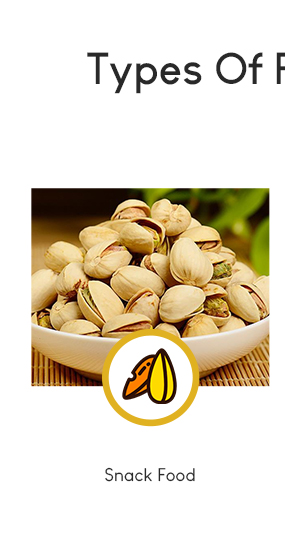 |
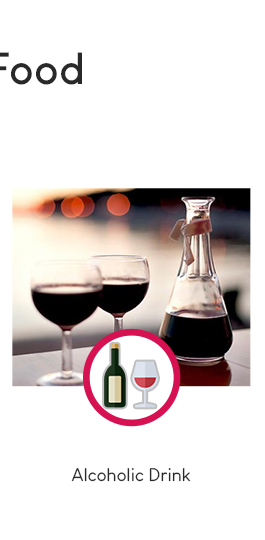 |
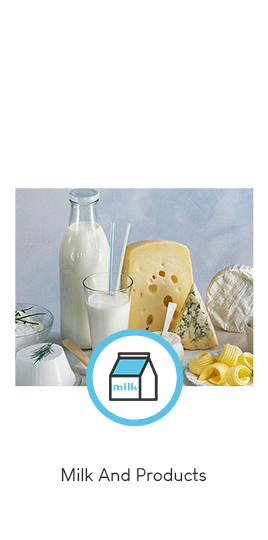 |
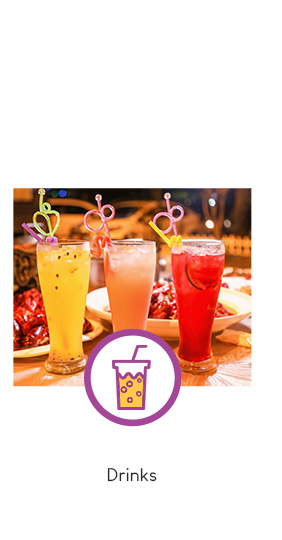 |
||
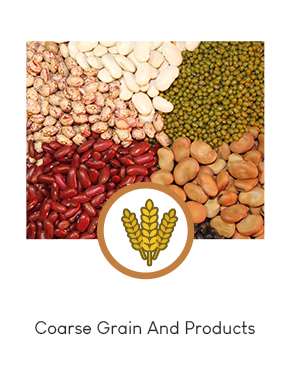 |
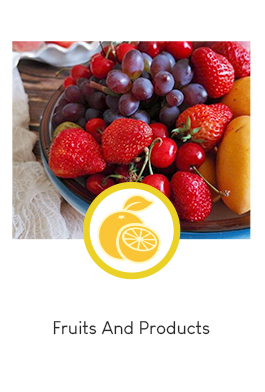 |
 |
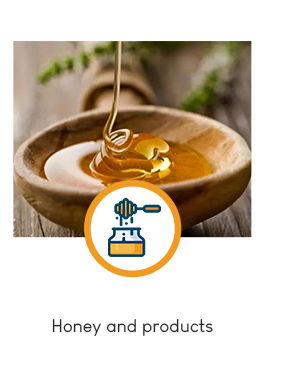 |
||
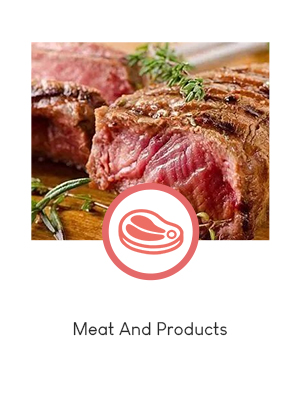 |
 |
 |
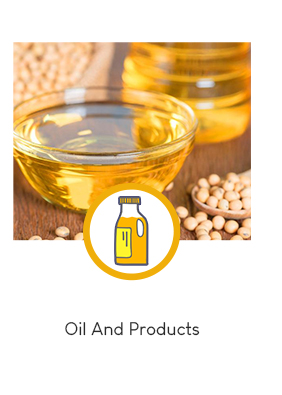 |
||
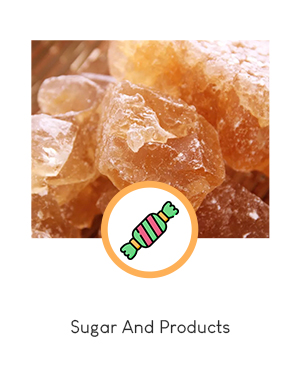 |
 |
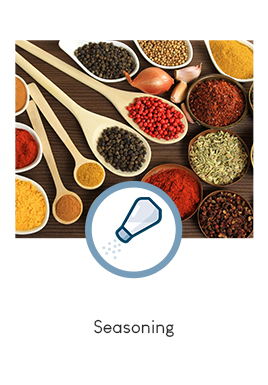 |
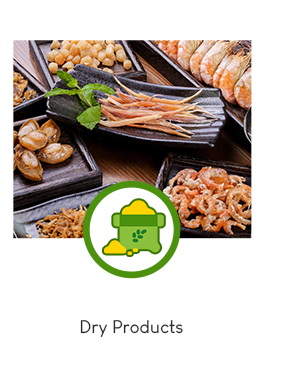 |
||
 |
|||||
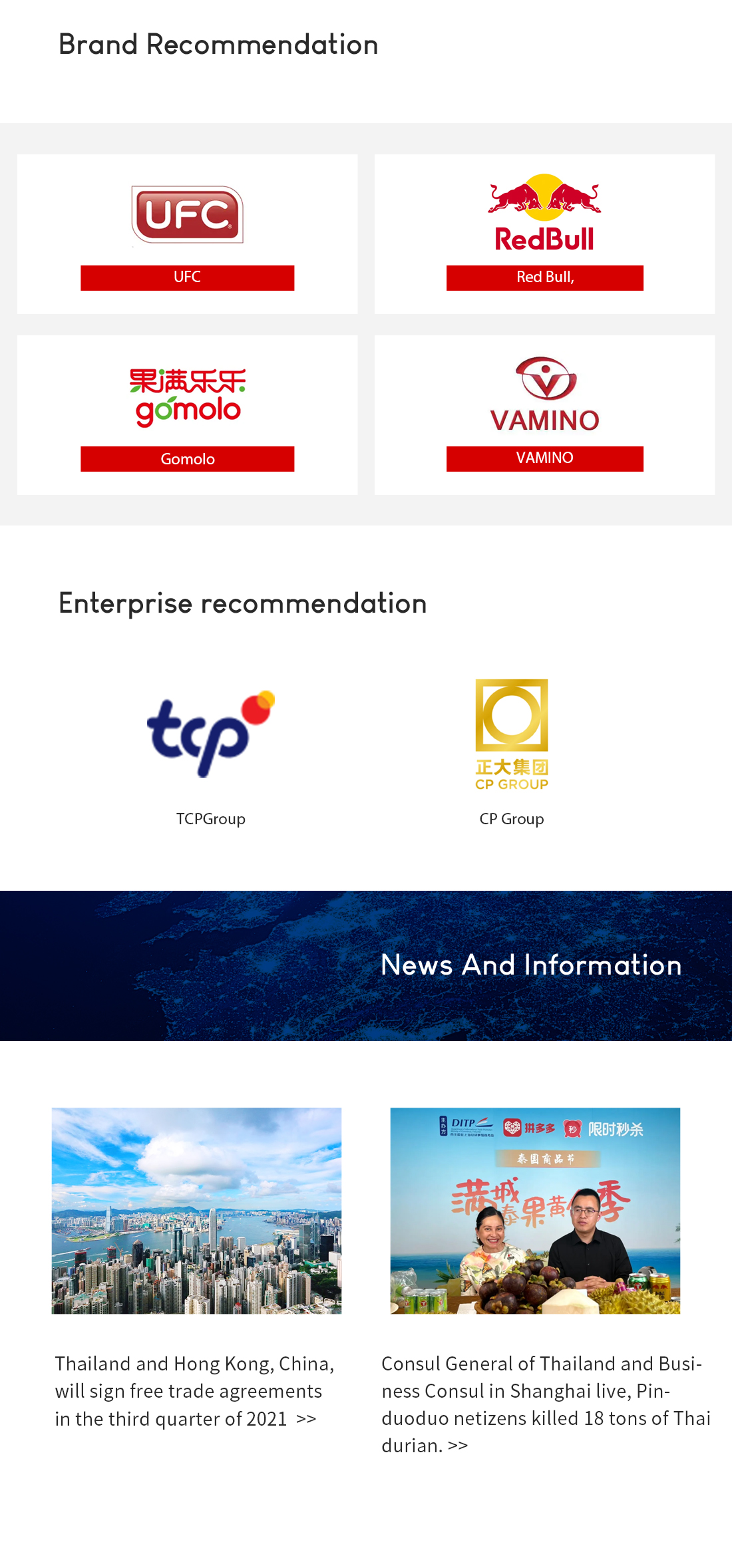
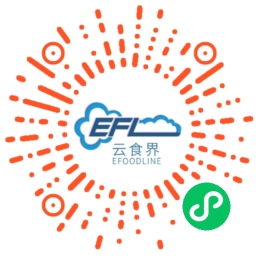 微信小程序
微信小程序
